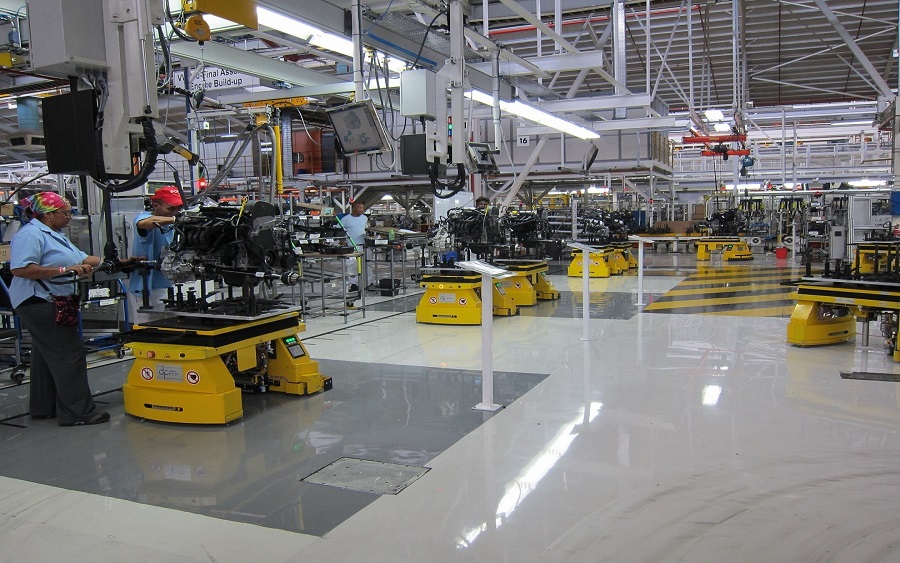Nigeria’s economy continues to grapple with the ripple effects of the COVID-19 pandemic, as the manufacturing sector shrunk further in the month of July 2020. This is contained in the latest Purchasing Manager’s Index (PMI) report released by the Central Bank of Nigeria.
According to the latest data released by the apex bank, Manufacturing PMI in the month of July stood at 44.9 index points, indicating a contraction in the manufacturing sector for the third consecutive month.
The latest figure shows marginal growth compared to 41.1 and 42.4 index points recorded in June and May 2020 respectively. Meanwhile, the Nigerian economy remains on a tepid trajectory as the COVID-19 pandemic continues to disrupt both supply and demand chains of production.
READ MORE: Loan: CBN disburses over N300 billion to SMEs, health, agric, manufacturing sectors
Contraction subsists across key sub-sectors
Of the 14 surveyed subsectors, the transportation equipment subsector reported growth (above 50% threshold) in the reviewed month, while nonmetallics in the mineral products sector reported no change. The improvement in transportation must have been driven by the gradual easing of lockdown across the country.
However, the remaining 12 subsectors shrank in the following order: printing & related support activities; primary metals; fabricated metal products; paper products; food, beverage & tobacco products; chemical & pharmaceutical products; furniture & related products; electrical equipment; plastics & rubber products; petroleum & coal products; textile, apparel, leather & footwear, and cement.
Also, the non-manufacturing PMI stood at 43.3 index points, indicating a contraction for the fourth consecutive month, though showing signs of recovery compared to 35.7 and 25.3 index points recorded in June and May respectively.
READ MORE: Insufficient electricity, unfavourable economy are among challenges hindering companies –CBN
Of the 17 surveyed subsectors, only arts, entertainment & recreation, and transportation & warehousing recorded growth (above 50% threshold), while the remaining 15 subsectors recorded declines in July 2020.
Manufacturing components remain negative in July
The CBN report usually has five PMI components, which include Production level, New orders, Supplier Delivery time, Employment level, and Raw material inventory. In the month of July, four of the five components shrank in the following order: Production level (44.7), New orders (43.1), Employment level (40), and Raw material inventory (43.2).
However, supplier delivery time witnessed growth at 56.4 points in July, an improvement which is expected to improve in the coming months as nationwide lockdown continues to easy and economic activities improve.
READ MORE: Jim Ovia: From a clerk to founder of Nigeria’s most profitable bank
What this means
PMI is a survey conducted by the Central Bank of Nigeria, showing changes in the level of business activities in the current month compared with the preceding month.
For each of the indicators measured, this report shows the diffusion index of the responses, which is computed as the percentage of responses with positive change plus half of the percentage of those reporting no change, except for supplier delivery time, which is computed as the percentage of responses with negative change plus half of the percentage of those reporting no change.
The latest PMI figures show that Nigeria’s manufacturing and the non-manufacturing sectors are yet to recover from the effects of COVID-19 lockdown, which caused disruption in all economic activities across the country.
Also, the continued contraction in the manufacturing sector implies that unemployment may rise further in the economy. According to the Economic Sustainability plan recently released by the Nigerian government, unemployment may hit c.40% by the end of 2020— a trend that may leave the Nigerian economy in a sustained deep recession.

















